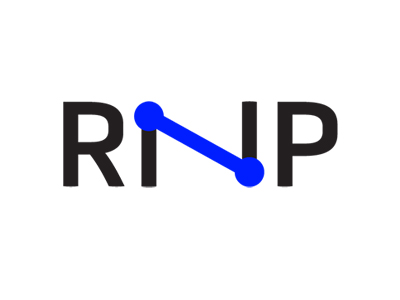Rehabilitation of patients who have suffered stroke can be improved significantly through a combination of virtual reality and artificial intelligence (AI). This has been shown by a Brazilian startup company through a project supported by RNP, the national research and education network (NREN) of Brazil.
“I studied patients that were in a chronic stage after their stroke, a group with little chance of long-term improvement. Many of them were facing depression, loss of mobility and problems in socializing, which in turn would make their rehabilitation even more challenging. Lack of progress led several into not complying with their treatment, further aggravating the condition. We wanted to change this reality,” says Isabela Alves Marques, CEO of the company Reabnet Tecnologia, which develops the digital solutions in question.
Reabnet provides interactive games which allow the patients to perform activities in their own homes, while evolution of the process is monitored by digital tools. The games heighten the motivation of the patients, addressing both the physical and emotional sides of the rehabilitation process.
From academia to patients
Isabela Alves Marques entered the field as a researcher during her PhD project:
“The project demonstrated that the interactive games had a very positive impact. My supervisor, Eduardo Naves, always insisted that we should take this technology further, beyond the academic context.”
The project did attract public interest but initially remained in the academic environment. This changed when it was included in the RNP program for research and innovation in advanced services. Here, the solution matured leading to the foundation of Reabnet Tecnologia in March 2023.
“The backing from RNP was fundamental for turning Reabnet into a publicly available solution. Without this initial support, it would have been very difficult to get to where we are now, despite the potential for the technology we had developed. RNP offered the necessary resources for us to take the first step towards becoming a company. In Brazil, you see a lot of innovation happening in academia, but turning this into a business requires structured assistance. Initiatives like this (the RNP program, ed.) are essential for turning ideas into concrete solutions,” says the CEO.
No need for expensive equipment
Notably, the platform allows the patient to participate in remote sessions without having to invest in expensive equipment. Just a normal camera and a notebook will do.
“Everybody has these appliances at home. The camera acts as the system’s sensor, so there is no need for external sensors. Also, the embedded AI allows us to evaluate the evolution of the patient without the need to involve highly experienced physiotherapists. The system measures progress automatically: if the arm can be elevated more today than yesterday, the platform will notice and then show it to the patient. Furthermore, each game has a well-defined therapeutic goal,” explains Isabela.
Reabnet is a part of the RNP and Startups network of collaboration, which is a space for dissemination of innovations and consolidation of technologies, helping startups which have sprung from the research and development programs of RNP.
The text is inspired by the article “Jogos, realidade virtual e IA transformam a reabilitacao de pacientes” at the RNP website (in Portuguese).







